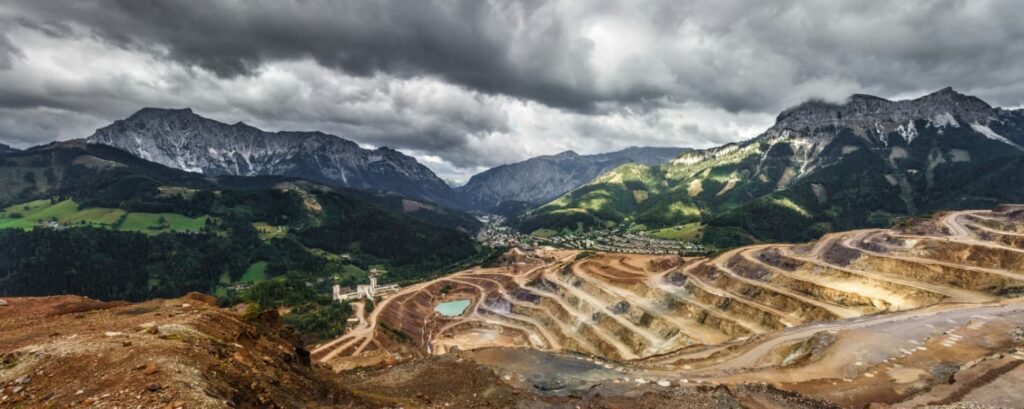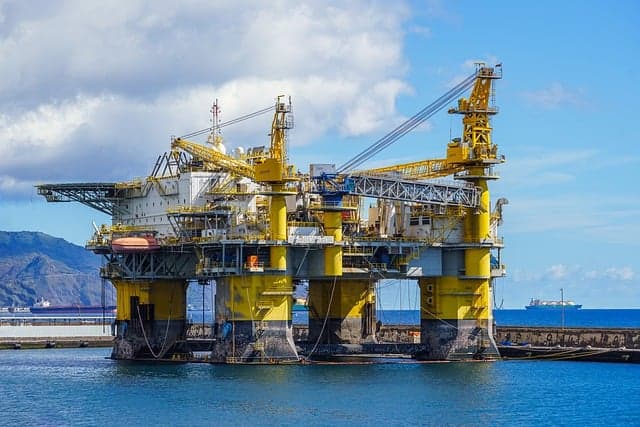The mining industry plays a pivotal role in global economic development, providing essential resources that fuel innovation, infrastructure, and daily life. However, as awareness of environmental challenges grows, mining consulting has become an indispensable part of ensuring that resource extraction aligns with sustainability goals. This article explores how mining consulting contributes to environmental preservation through waste management, land restoration, and sustainable development.
K-MINE, a leader in mining consulting, plays a crucial role in helping mining companies implement sustainable practices. Their expertise ensures operations are both efficient and environmentally responsible.
Addressing Environmental Challenges in Mining
Mining operations have long been associated with significant environmental impacts, such as habitat destruction, soil erosion, water pollution, and greenhouse gas emissions. Addressing these challenges requires expert guidance to minimize adverse effects while optimizing resource extraction.
Mining consulting firms specialize in assessing environmental risks, designing sustainable mining practices, and implementing strategies to comply with local and international environmental regulations. Their expertise ensures that mining projects contribute to economic growth without compromising ecological balance.
How Mining Consulting Promotes Sustainability
- Waste Management and Recycling Effective waste management is crucial in reducing the environmental footprint of mining. Mining consulting services include developing strategies to minimize waste, recycle materials, and safely dispose of hazardous byproducts. Consultants work with mining companies to implement circular economy practices, ensuring resources are reused wherever possible. This approach reduces landfill use, minimizes the release of harmful substances, and promotes sustainable resource utilization.
Proper waste management also involves innovative solutions for managing tailings, the byproducts of mineral processing. Tailings storage facilities (TSFs) are often a major focus, and consultants work on improving their safety and environmental performance by integrating technologies like dry stacking and water recovery systems.
- Water Resource Management Water is a critical resource in mining operations, but excessive use or contamination can harm ecosystems. Mining consulting involves designing water management systems that conserve resources, prevent contamination, and support local water needs. Advanced techniques, such as water recycling, treatment systems, and zero-discharge technologies, are often recommended to achieve these goals. Consultants also help companies comply with stringent water usage regulations and mitigate the risk of water scarcity in mining regions.
Additionally, consultants develop systems to monitor water quality in real time, ensuring compliance with environmental standards and helping to address issues like acid mine drainage (AMD), which can severely impact nearby water bodies.
- Land Rehabilitation and Biodiversity Conservation Post-mining land restoration is essential for preserving biodiversity and supporting community development. Mining consultants create detailed plans for land rehabilitation, including reforestation, soil stabilization, and habitat restoration. These efforts ensure that mining sites are returned to a natural or economically viable state, benefiting local communities and wildlife. Biodiversity conservation strategies often include creating wildlife corridors and protecting endangered species affected by mining operations.
Successful land rehabilitation involves early planning, often starting before mining activities begin. This forward-thinking approach allows consultants to incorporate natural land features and ecological priorities into mine closure plans, ensuring better outcomes for affected ecosystems.
- Reducing Carbon Footprint Mining consulting firms assist companies in transitioning to low-carbon technologies, such as renewable energy sources and energy-efficient machinery. By integrating carbon reduction strategies, mining operations can align with global climate targets and improve their environmental reputation. Consultants often conduct carbon footprint assessments and recommend practices like
electrifying mining fleets and utilizing solar or wind energy to power operations.
Carbon offset programs, such as reforestation and investments in renewable energy projects, are also becoming integral to mining operations. Mining consultants help companies identify and implement these programs effectively.
- Innovation in Sustainable Technologies Mining consulting is at the forefront of adopting innovative technologies to reduce environmental impacts. From autonomous electric vehicles to advanced monitoring systems that track environmental performance, consultants guide companies in leveraging cutting-edge tools. These technologies not only enhance operational efficiency but also ensure compliance with environmental standards.
One promising technology is the use of geospatial analysis and predictive modeling to identify optimal extraction areas while minimizing environmental disruption. Consultants also help integrate technologies like drones for site monitoring and AI for resource management.
The Role of Policy and Public Awareness

Effective mining consulting extends beyond technical solutions to include policy advocacy and public engagement. Consultants often collaborate with governments, NGOs, and local communities to develop mining policies that prioritize environmental protection. Public awareness campaigns can also promote sustainable practices, ensuring that all stakeholders play a role in reducing the industry’s environmental impact.
Policy development focuses on creating a regulatory framework that incentivizes sustainable practices while penalizing environmental negligence. Public engagement involves educating communities about the benefits of sustainable mining and addressing their concerns, fostering trust between mining companies and local populations.
Moreover, mining consulting firms play a vital role in preparing Environmental and Social Impact Assessments (ESIAs), which are crucial for obtaining project approvals and maintaining transparency with stakeholders.
Case Studies: Successful Mining Consulting Projects
- Sustainable Gold Mining in South America A mining consulting firm partnered with a gold mining company to implement sustainable practices across its operations. The project included the introduction of mercury-free extraction methods, extensive reforestation efforts, and community education programs. These measures significantly reduced environmental damage and enhanced the company’s reputation.
- Water Conservation in Australia’s Mines In Australia, a mining consulting company helped a major iron ore producer design a water management system that recycles 90% of the water used in its operations. This initiative not only conserved local water resources but also set a benchmark for water efficiency in the industry.
- Carbon Neutrality in African Mining An African mining company achieved carbon neutrality with the assistance of consultants who developed a comprehensive carbon offset plan. By investing in renewable energy projects and reforestation, the company balanced its emissions, demonstrating leadership in sustainable mining.
Each of these examples highlights the transformative impact of mining consulting on environmental and social performance, proving that sustainable mining is both achievable and beneficial.
Future Trends in Mining Consulting
The role of mining consulting will continue to evolve as environmental challenges intensify. Key trends include:
- Increased Use of Artificial Intelligence (AI): AI can optimize mining processes, reducing energy consumption and waste.
- Focus on Social Responsibility: Consultants will place greater emphasis on the social impacts of mining, such as community welfare.
- Expansion of Renewable Energy Integration: As renewable energy becomes more affordable, consultants will guide mining companies in transitioning to cleaner energy sources.
- Circular Economy Approaches: Emphasizing waste reuse and recycling within the mining process.
- Enhanced Remote Monitoring Tools: Consultants will increasingly rely on IoT devices and remote sensing technologies to ensure real-time environmental compliance.
Conclusion
Mining consulting bridges the gap between resource extraction and environmental sustainability, providing innovative solutions to modern challenges. By integrating waste management, water conservation, land rehabilitation, carbon reduction strategies, and sustainable technologies, consultants help mining companies operate responsibly and contribute to a sustainable future.
K-MINE, a trusted partner in mining consulting, brings industry-leading expertise and innovative solutions to help companies achieve their environmental and operational goals. If your organization seeks to optimize its mining practices while prioritizing environmental stewardship, partnering with experienced mining consultants is the first step toward sustainable success.



